Postnatal depression: 'The help is too far away to risk having more kids’
- Published
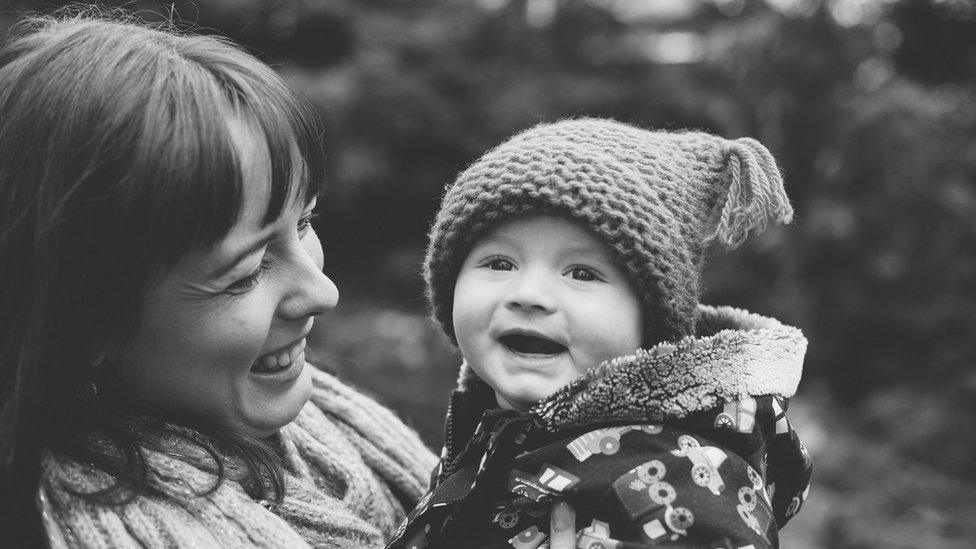
Linsey Singers with her son Jack
New mums with severe mental health problems are having to travel hundreds of miles to get hospital treatment because all of the specialist beds for patients with acute postnatal depression are in Scotland's central belt.
Linsey Singers and son Jack had to move 170 miles from Aberdeenshire to get help when she suffered severe mental health problems after his birth.
Linsey was admitted to a specialist unit in West Lothian which she credits with saving her life.
She is now campaigning for greater support for new mothers in the north of Scotland.
"If I hadn't had the opportunity to go there, I don't think Jack would have a mum," she said.
"I ended up with really quite severe anxiety and depression, thoughts of suicide and I was seeing things that weren't there.
"I don't think there are many people who would say they think fondly of their time in a psychiatric unit but I do. The care was incredible."
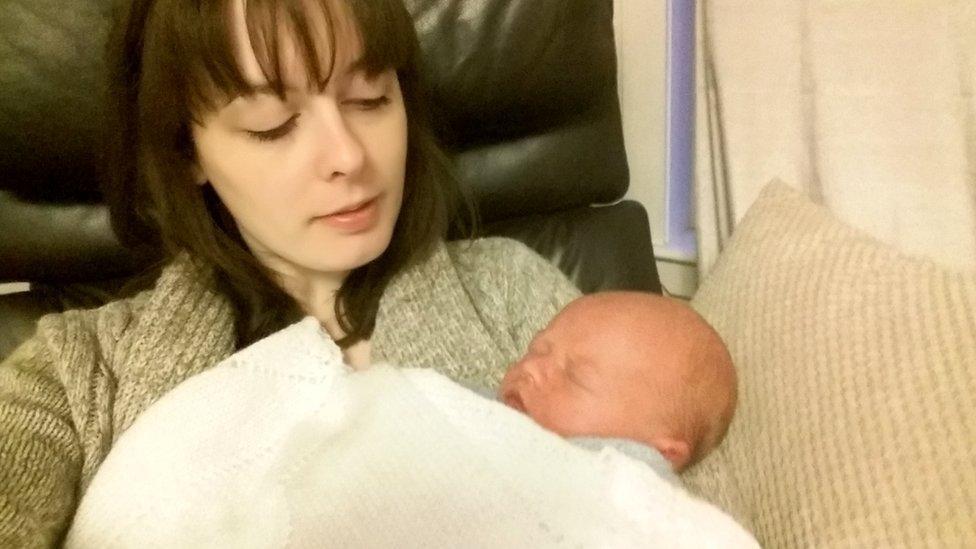
Linsey sought help with her mental health about three months after Jack was born in 2017
But Linsey's short stay at the Livingston mother and baby unit in 2017 had big consequences for her life.
Linsey and her partner Paul, who live in Inverurie, have since decided not to have any more children because of concerns that the specialist mental health care is still in the central belt.
"The geographical barrier to access that specialist care is hard enough when it's your first baby and it's just your husband you're leaving behind, but the thought of leaving one child behind and only being able to bring a baby with me.
"I just couldn't do that," she said.
About one in five new mothers have a mental health condition.
These can include depression, anxiety, post-traumatic stress disorder and psychotic disorders.
For those with acute problems, this can require specialist hospital treatment at either a unit in Glasgow or Livingston.
Both of these facilities deal with about 115 admissions a year, according to Scottish government figures.
However, there are a further 125 admissions per year of women within 12 months of childbirth to other inpatient mental health beds.
These will typically be closer to the patient's home but means they are separated from their baby while being treated.
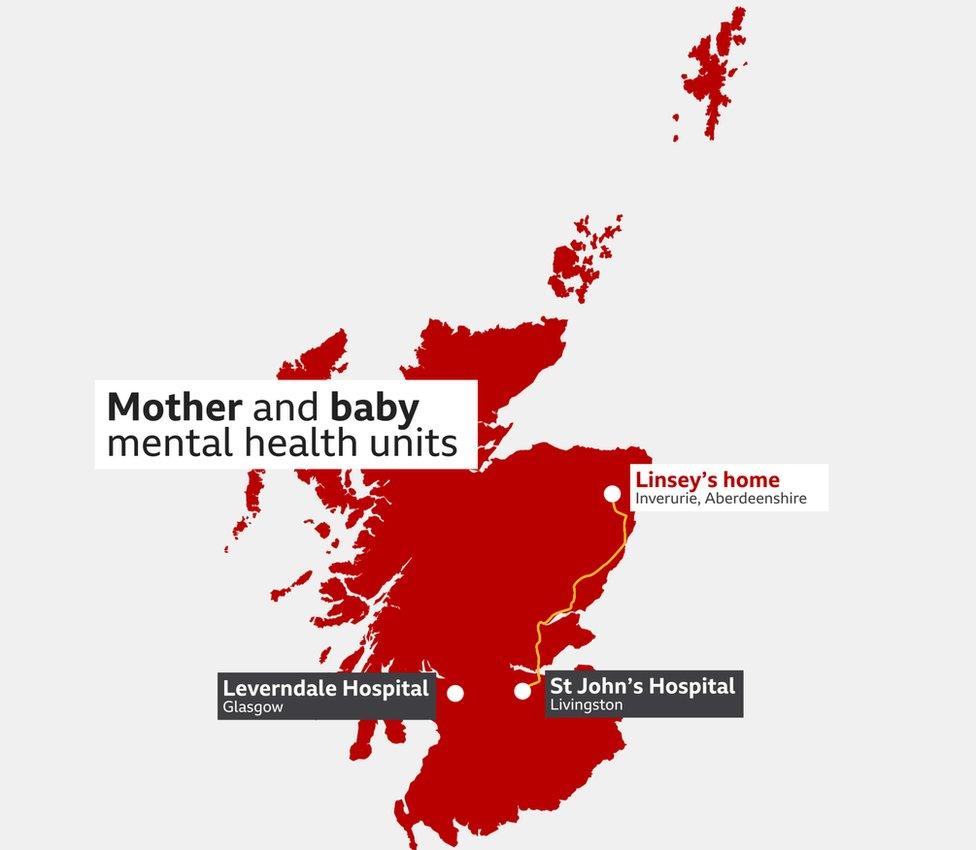
Dr Selena Gleadow-Ware, chairwoman of the perinatal faculty of the Royal College of Psychiatrists in Scotland, said: "There will always be women who are further away from mother and baby unit services.
"We need specialist community perinatal mental health services to support admission and discharge from mother and baby units."
'Too difficult a choice'
The Scottish government is planning to increase the number of new mother and baby specialist beds by either expanding the existing facilities in the central belt or opening a new unit in the north of Scotland.
Gill Skene, who runs a peer support group called Let's All Talk North East Mums (Latnem), said many mothers were put off going to the specialist units because of the distances involved for them and visiting family members.
She said: "It's just too difficult a choice and a lot of mums are deciding to stay at home. And that's not the best decision when your mental health is really struggling and you need that level of care."
In February, a report by the Scottish parliament's health committee warned that mental health care and support for new and expectant mothers was not up to scratch.
MSPs said they were "concerned by evidence of significant inconsistencies in accessibility of Mother Baby Units across different NHS board areas and the lack of provision in the north of Scotland, which means mothers are having to travel long distances".
Expanding provision
A spokesman for the Scottish government said mother and baby units were open to women across Scotland regardless of their health board and admissions were based on "clinical need and not geography."
He added: "Mother and baby units treat the small percentage of women who need the highest level of support for perinatal mental health difficulties. These units provide very specialised multi-disciplinary care.
"Options such as expanding one, or both, of the existing units, or the creation of a new third unit in one of the mainland north of Scotland health boards are being considered."
The spokesman said a fund was created in October last year which allowed women and families to claim travel and accommodation costs for visits to mother and baby units.
- Published10 February 2022
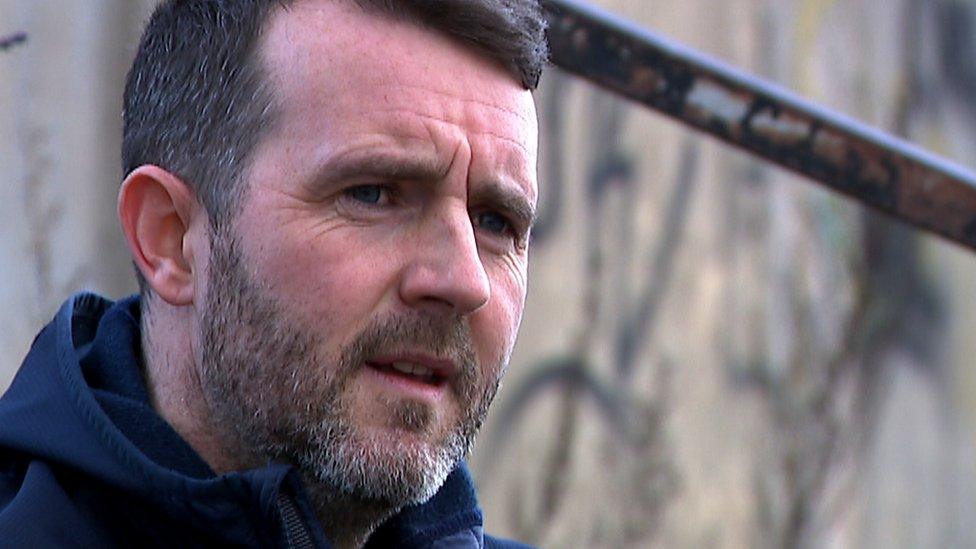
- Published31 August 2020
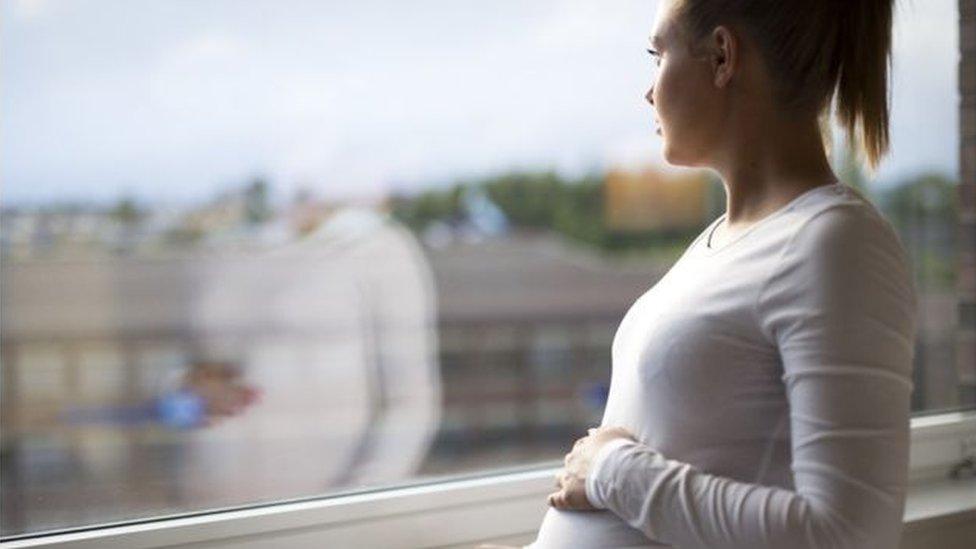
- Published6 March 2019
